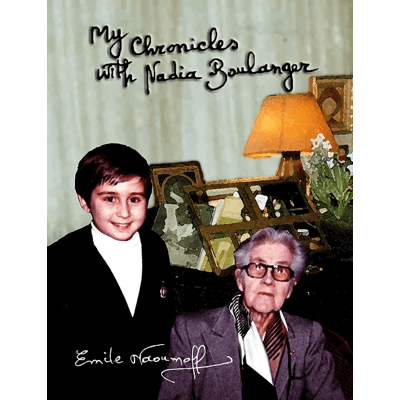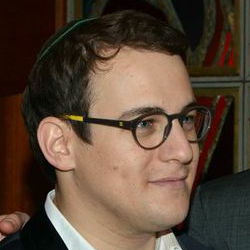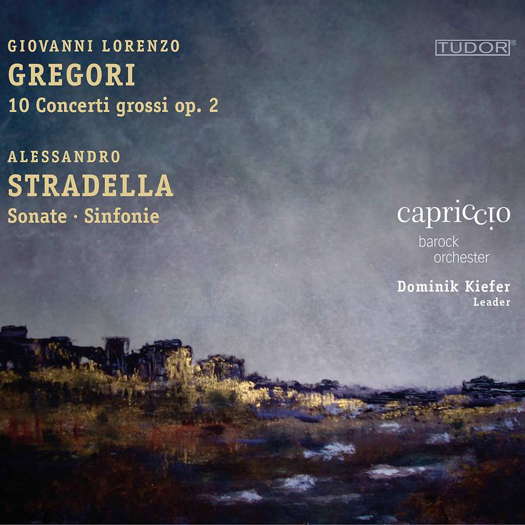- SKANi
- Britten
- Jacob Liebmann Beer
- John Lanchbery
- Novello
- Bacewicz: Piano Concerto
- Hawkeye Publishing Pty Ltd
- Nathan Vickery
 PODCAST: Join Jenna Orkin, Maria Nockin, John Daleiden, Gerald Fenech, Julian Jacobson, Patrick Maxwell, Giuseppe Pennisi and Mike Wheeler for a fascinating fifty-minute audio only programme.
PODCAST: Join Jenna Orkin, Maria Nockin, John Daleiden, Gerald Fenech, Julian Jacobson, Patrick Maxwell, Giuseppe Pennisi and Mike Wheeler for a fascinating fifty-minute audio only programme.
 SPONSORED: Ensemble. Melting Rhapsody - Malcolm Miller enjoys Jack Liebeck and Danny Driver's 'Hebrew Melody' recital, plus a recital by David Aaron Carpenter.
SPONSORED: Ensemble. Melting Rhapsody - Malcolm Miller enjoys Jack Liebeck and Danny Driver's 'Hebrew Melody' recital, plus a recital by David Aaron Carpenter.
All sponsored features >>

Miniature Gems
GERALD FENECH listens to music by two neglected Italian Baroque composers - Alessandro Stradella and Giovanni Lorenzo Gregori
'... precise yet stylish playing ...'
This attractive issue focuses on two composers who, in spite of their important contribution to the Italian baroque, are still relatively neglected, and one more than the other. Alessandro Stradella (1643-1682) was an accomplished musician of the Middle Baroque period, who, in his day, was admired as an exceptional violinist. He enjoyed a dazzling career as a freelance composer, writing on commission and collaborating with the poets of the time. Not much is known about his early life, but by the age of twenty-four he was already making a name for himself. In 1667 he composed a Latin oratorio, now lost, for the Confraternity of Crocifisso di San Marcello, and in 1671-72 he collaborated on staging some operas by Cavalli and Cesti, also composing prologues, intermedios and new arias. He even wrote some complete stage works to be performed in private theatres of aristocratic families.
Unfortunately, Stradella is also famous for his scandalous and dissolute life. His licentious affairs with women were notorious, and he even attempted to embezzle the Catholic Church. This lifestyle began to make him enemies among the powerful men in Rome, and he had to flee the city. In 1677 he went to Venice and embarked on a disastrous affair with the mistress of his employer Alvise Contarini, which resulted in an attempt on his life. Luckily this failed, but fate finally caught up with him. On 25 February 1682 he was stabbed to death at the Piazza Banchi in Genoa by a hired killer from the Lomellini family, after another tempestuous affair.
Stradella's output is considerable, and numbers some three hundred works in all genres. This issue includes four of his orchestral works spread over ten very short movements. Despite this brevity, Stradella's music is full of melodic invention and subtle beauty, and his mastery of form is consistently outstanding.
Listen — Alessandro Stradella: Allegro finale (Concerto Grosso No 10 in A)
(track 19, 4:04-4:56) ℗ 2020 Tudor Recording AG :
Giovanni Lorenzo Gregori (1663-1745) was a superb Italian violinist and composer. In 1684 he co-founded 'The Musical Brotherhood' in Lucca. Between 1688 and 1692 he served as Director of Music in the local palace with great success. Gregori was the first to use the term 'Concerto grosso' in a set of ten compositions published in Lucca in 1698. He was also a devoted musical theorist, writing two very important theses: Il canto fermo in pratica (1697) and Il principiante di musica (1735). In Gregori's Concerti grossi, however rich in variety and content they may be, the solo passages of the two violins, and occasionally the cello, are only brief interludes which are restricted to a very limited harmonic range. Much more of substance than these solo passages is the composer's vibrant musical language that is constantly sparkling and alive. This disc includes the complete set of ten.
Listen — Giovanni Gregori: Allegro (Concerto Grosso No 4 in A)
(track 5, 2:09-2:49) ℗ 2020 Tudor Recording AG :
Dominik Kiefer and his Capriccio Baroque Orchestra give superb interpretations of this very special music, and their precise yet stylish playing brings out all the poetry of these miniature gems. A wonderful CD, handsomely presented and recorded.
Copyright © 19 March 2021
Gerald Fenech,
Gzira, Malta

CD INFO: GREGORI & STRADELLA - CAPRICCIO BAROCK ORCHESTER


